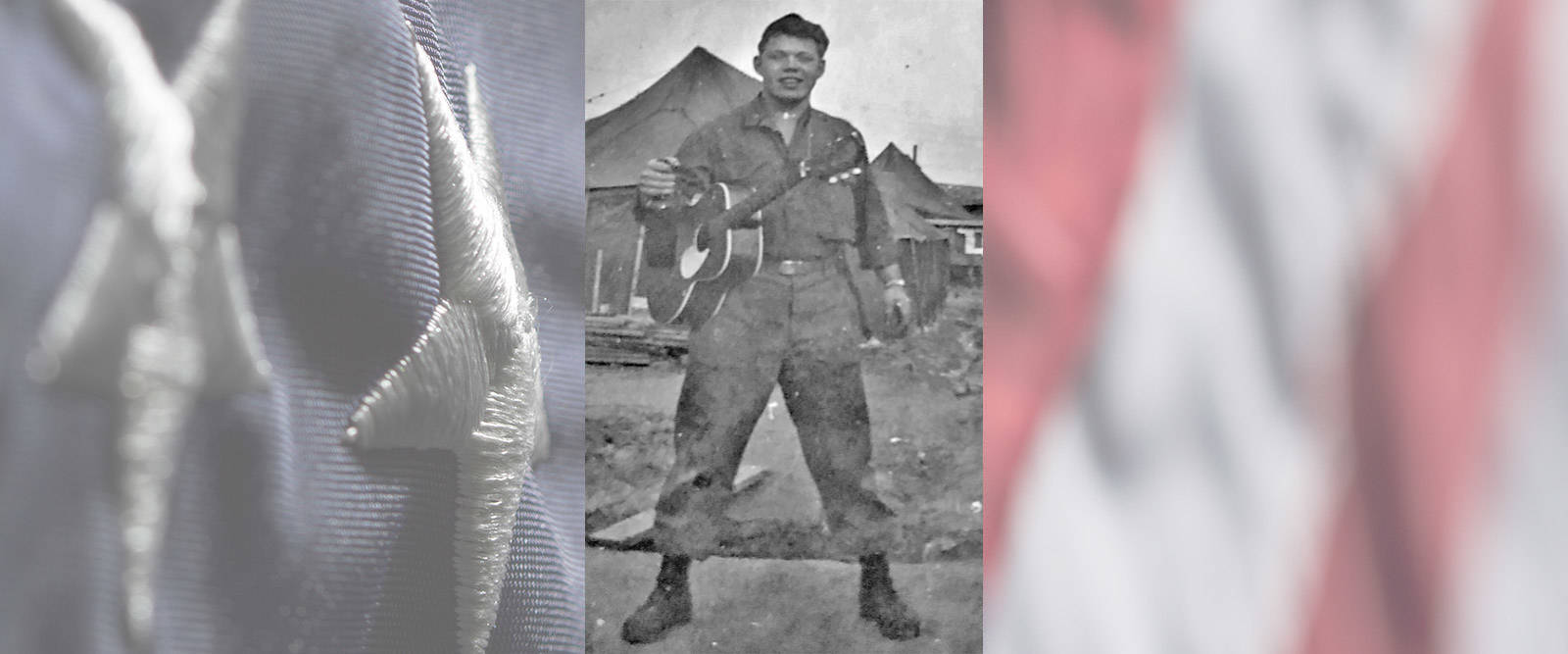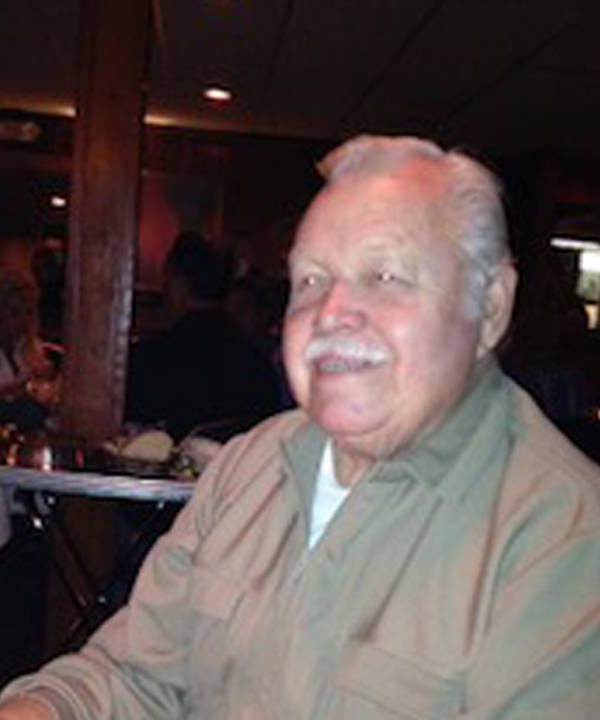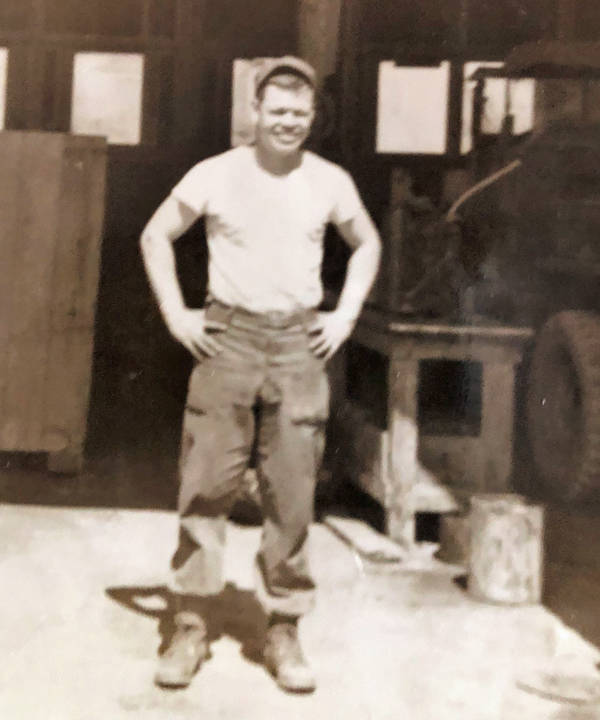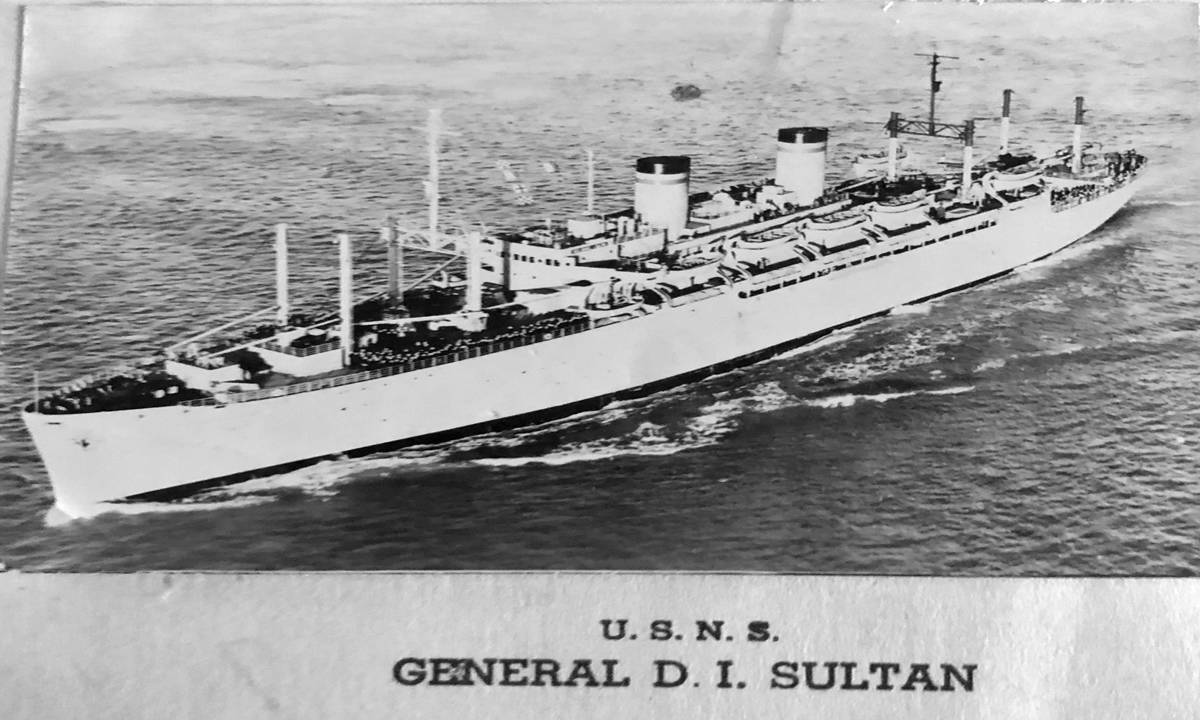U.S. Army Korean War Lansing, IL Flight date: 09/12/18
By Frank Hauenschild, Honor Flight Chicago Veteran Interviews Volunteer
Bill was working various jobs in the south suburbs when he received his “Greetings” letter from Uncle Sam. He was born and raised on a farm in Bethel, IL near Danville, and Danville was his induction point. From Danville, Bill was transported to Ft. Sheridan in Chicago to undergo medical examinations for the Army. Bill recalled the medical personnel at Ft. Sheridan had declared Bill fit for duty upon “verifying that I had a heartbeat and that I was breathing.” From there he was placed on a train to Fort Leonard Wood, MO where he began his Basic Training.
Bill did not fare well at Basic Training in Ft. Leonard Wood. During his training, Bill developed double pneumonia and spent two weeks in the hospital and then another two weeks recovering from his illness. By the time he was released to full duty, his initial recruitment class moved on and Bill was assigned to a Headquarters Company at Ft. Leonard Wood to complete his training. Thereafter, Bill was placed on troop train to California where he continued training and was eventually assigned as a construction engineer within the U.S. Army.
After arriving in California, Bill boarded the USNS General Daniel I. Sultan troop transport ship in San Francisco. Bill related that the Sultan was half filled with troops and the other half was filled with civilian personnel. While the troops and civilian personnel were separated, military personnel continued with on-ship physical training. During down time, Bill, who had learned to play the guitar earlier in his life, would often break some of the tension and boredom by entertaining his fellow military comrades with song and playing his guitar.
Arriving in Hawaii, Bill resumed training for two weeks, including rifle marksmanship and hand-to-hand combat. Bill re-boarded the Sultan which continued his journey to Yokosuka Naval Base in Japan, where he would be deployed to Korea. From Yokosuka, Bill was transported to Tachikawa Airfield, the main Air Base which moved troops and materials in and out of the war zones in Korea. At Tachikawa, he boarded a C-124 transport plane for a flight to Seoul, Korea. In Seoul, Bill was assigned to the 520th Engineer Company. Bill recalled the heavy rain upon his arrival which did not let up. “Boy did it rain” Bill exclaimed, as he first saw the area he was assigned to as an Engineer.
As an Engineer, Bill was assigned to repairing and maintaining various bridges, roads and airstrips that supported the frontline combat troops. These duties would also include the trucks, D8 Caterpillar Bulldozers and other heavy equipment that were used by the engineers. Bill’s main base was a compound and airstrip in Korea and while not an official frontline of combat, it was in the combat zone. Bill recalled that while there was no hand-to-hand combat, the compound and airstrip was routinely bombed and strafed by North Korean aircraft with .30 caliber machine gun fire. Upon asking Bill where he would go when his area was attacked, he simply replied “anywhere we could get to” to avoid enemy fire. Following an attack, it was back to the business of repairing the damage to the earthen airstrip and equipment. Bill also related that on occasion, a sniper was able to creep into the area where his unit was located and get a few shots off in an attempt to cause havoc.
Enemy bombings and enemy aircraft fire would not be the only source of damage to the airstrip. He stated that damage would also be caused by UN forces’ aircraft trying to land. Many times aircraft would be shot up so badly and/or the pilots wounded that the planes would crash upon landing. He knew when a plane was in trouble when he would see a plane maneuver violently trying to shake off the detachable fuel tanks before landing. Pilots did not want to land with auxiliary tanks still connected to the plane due to the high probability of fire and explosions.
Bill witnessed many plane crashes while at his airstrip but there were no rescue trucks or rescue personnel, just the medics that were stationed there. When a plane would crash land, he and his fellow engineers would rush to the plane to get the pilot out of the cockpit. Bill recalls they used whatever they could get their hands on to pry the pilot out of the plane and the biggest fear was that the plane would explode before they could get the pilot out. Many times the planes did in fact explode upon crash landing and there was nothing they could do to help. Sadly, Bill remembers the times they could not get to the plane fast enough to get the pilot out, or when the pilot did not survive due to combat sustained injuries.
There were times that Bill was able to get away from the combat zone. He related that he would receive passes every three months for a few days of rest and relaxation. He once traveled to Japan on a rare nine-day pass while in Korea. While he enjoyed the beauty of Japan, the clubs and bars were filled with ever watchful MPs during the evening hours.
After many months, Bill was assigned to a SCARWAF unit. SCARWAF means “Specialized Category Army Reassigned with Air Force.” As a SCARWAF member, he was assigned to an airfield in South Korea outside of the combat zone. There Bill would maintain buildings, paved runways, and related trucks and equipment. What Bill liked most was about this Air Force base is that he “slept well” as they had sheets on the cots they slept on! This was quite a change and he can never forget his time before SCARWAF. He recalled the bitter cold of winter in Korea, at times reaching 42 degrees below zero and keeping trucks and heavy equipment operable by running 24/7. Bill chuckled as he recollected that the trucks stayed in the Quonset buildings and the engineers shared twelve-man tents.
With the ceasefire of the Korean War being signed on July 27, 1953, Bill returned to the States on a troop transport ship. He was discharged at Ft. Sheridan, where he started. Bill left the Army as a corporal on July 28, 1954.
Returning home, as the youngest of four boys and two girls, he was glad to be reunited with his family. His older brothers, Mack and Bob, both served in WWII. Mack was a Marine in the Pacific Theatre and Bob served in the Army in Europe. His brother Jack, served in the Korean War as a Marine. Bill was the last of his brothers to serve his country.
Returning to the Chicago area, he married his childhood sweetheart, Marilyn, in 1955. Bill and Marilyn have just celebrated their 64th wedding anniversary. Recently retiring, for the second time, Bill and Marilyn spend time with their children, grandchildren and many of their nieces and nephews, all who love and respect them both.
Thank you U.S. Army Corporal William M. Van Duyn for your years of service to our country. Enjoy your well-deserved Honor Flight with your fellow veterans!






